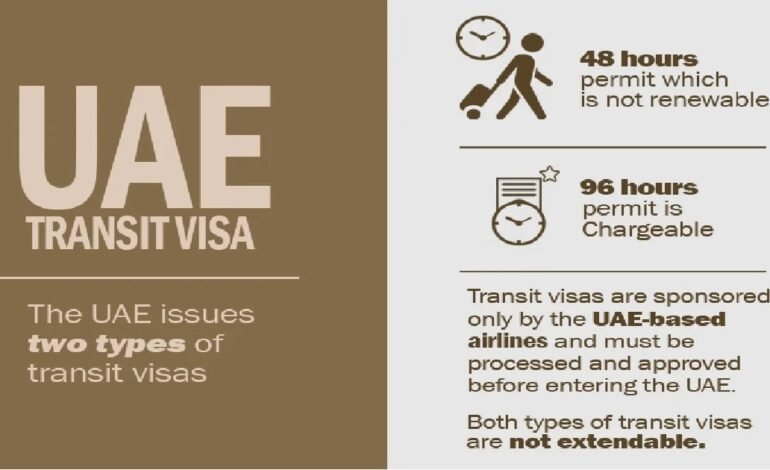The UAE is rapidly becoming a global destination for higher education, with world-class universities and vibrant student communities in cities like Dubai, Abu Dhabi, and Sharjah. For international students aiming to pursue their studies here, securing a valid student visa is a mandatory first step. This document serves as your official permit to live and learn in the country legally.
Navigating the visa process can feel overwhelming, but it doesn’t have to be. Recent updates for 2025 have streamlined sponsorship rules and introduced special categories like the Outstanding Student Visa, making it easier for talented individuals to join the UAE’s academic landscape. This guide provides a clear, step-by-step walkthrough of everything you need to know, from eligibility and required documents to costs and renewal procedures.
Eligibility – Who Can Apply?
Before starting your application, you must confirm that you meet the fundamental eligibility criteria. The UAE government has set clear conditions to ensure that applicants are genuine students with the necessary support to succeed.
To qualify for a UAE Student Visa, you must:
- Be accepted into an accredited institution: You need an official admission letter from a university, college, or school that is recognized by the UAE’s Ministry of Education or other relevant authorities.
- Meet age requirements: For higher education visas, applicants are typically 18 years or older. Younger students attending schools in the UAE are usually sponsored by their parents who are residents.
- Have a valid sponsor: Every student visa must be sponsored. This sponsorship can come from one of three sources:
- The university or college: This is the most common route, where the educational institution you are enrolled in sponsors your visa.
- A parent or legal guardian: If your parents are UAE residents, they can sponsor your student visa.
- Yourself (for Outstanding Students): High-achieving students may qualify for a long-term visa without needing a traditional sponsor.
Student Visa Requirements
A successful application depends on providing the correct documentation. Gathering these items in advance will help you avoid delays and ensure a smooth process.
Here is a checklist of the essential documents you will need:
- Valid Passport: Your passport must have at least six months of validity remaining from the date of your application and contain at least two blank pages for the visa stamp.
- Admission Letter: An official letter from your accredited UAE university or college confirming your enrollment.
- Passport-Size Photographs: Recent, clear photos with a white background that meet the UAE’s specific requirements for visa applications.
- Proof of Tuition Fee Payment: A receipt or official statement from the university confirming that you have paid the required fees for the upcoming academic year.
- Medical Fitness Certificate: You will need to pass a medical test at a government-approved health center in the UAE.
- Health Insurance: Proof of a valid health insurance policy that provides coverage within the UAE is mandatory.
- Attested Academic Transcripts: In some cases, you may be asked to provide your previous academic records (like high school diplomas or bachelor’s degrees), which must be attested by the Ministry of Foreign Affairs in your home country and the UAE embassy.
How to Apply for a UAE Student Visa
The application process is well-defined and can often be completed with the help of your university’s admissions or student services office. It typically follows these six steps.
Step 1: Receive Your Admission Letter
Your journey begins once you are accepted into a UAE educational institution. The official admission letter is the cornerstone of your visa application.
Step 2: Submit Your Application
Your application is usually submitted through your sponsoring university. They will process it on your behalf through official government portals. If you are applying directly or through a parent sponsor, you will use one of these sites:
- ICA Smart Services: https://icp.gov.ae (for most emirates)
- GDRFA Dubai: https://www.gdrfad.gov.ae (for Dubai)
Step 3: Upload Documents and Pay Fees
You will need to provide digital copies of all your required documents and pay the associated application fees. Ensure your scans are clear and all information is accurate to prevent processing delays.
Step 4: Complete Your Medical Fitness Test
After you arrive in the UAE (or if you are already in the country), you must undergo a medical fitness test. This test screens for certain communicable diseases and is a mandatory requirement for all residents.
Step 5: Register for Your Emirates ID
At the same time as your medical test, you will need to visit an authorized center to register for your Emirates ID. This involves providing biometric data, including your fingerprints and a digital photograph. The Emirates ID is your official identification card in the UAE.
Step 6: Get Your Visa Stamped in Your Passport
Once your medical test results are clear and your Emirates ID registration is complete, the final step is to have the residence visa stamped in your passport. This stamp confirms your legal residency status as a student in the UAE.
For more official details, you can always refer to the UAE government’s official page on residence visas: u.ae – UAE Residence Visa Info.
Fees & Processing Times
Budgeting for your student visa is an important part of your financial planning. The costs can vary depending on your university and the specific services you require. The entire process, from application submission to visa stamping, usually takes between 1 to 3 weeks.
Here is an estimated breakdown of the costs involved:
| Component | AED Range | Notes |
|---|---|---|
| Application Fee | 1,000–3,000 | This fee is often handled by the university and can vary. |
| Emirates ID | 170–370 | The cost depends on the validity period (typically one year). |
| Medical Test | 250–500 | Standard fees at government-approved health centers. |
| Visa Renewal (per year) | 1,000–2,000 | Required annually to continue your studies. |
| Health Insurance | 600–2,000 | Annual premium depending on the provider and coverage. |
| Estimated Total | 3,000–6,000 | This is the approximate total cost per year. |
Duration & Renewal Rules
Understanding the validity and renewal process for your student visa is essential for maintaining your legal status throughout your studies.
- Standard Duration: Most UAE student visas are valid for one year.
- Annual Renewal: You must renew your visa every year. To do so, you will need to provide proof of continued enrollment from your university, a new medical test, and valid health insurance.
- Grace Period: If your visa expires, the UAE government provides a 30-day grace period to either renew it or exit the country. Overstaying this period will result in daily fines.
Special Student Visa Categories
The UAE offers a few different types of student visas to cater to various circumstances.
- University-Sponsored Visa: This is the most common type, where your college or university acts as your official sponsor. The institution handles the bulk of the administrative work for you.
- Parent-Sponsored Visa: If your parents are residents of the UAE, they can sponsor your student visa. This is often a straightforward option for students whose families already live in the country.
- Outstanding Student Visa: This prestigious 5-year visa is granted to high-achieving students. To qualify, you generally need to have a high school graduation score of at least 95% from a public or private school or a GPA of 3.75 or higher from a university.
Common Rejection Reasons
While the process is generally smooth, some applications are rejected. Knowing the common reasons can help you avoid them.
- Invalid or Missing Admission Letter: The letter must be from a fully accredited institution.
- Expired Passport: Your passport must meet the six-month validity rule.
- Low Academic Performance: This is particularly relevant for those applying for the Outstanding Student Visa, which has strict academic requirements.
- Incomplete Documentation: Failing to provide all the required documents, or providing documents that are not properly attested, is a frequent cause for rejection.
Frequently Asked Questions
1. Can I work on a UAE student visa?
Yes, students are allowed to work part-time during their studies, provided they obtain a permit from the Ministry of Human Resources and Emiratisation (MoHRE). Universities often have career centers that can help you find suitable part-time jobs and navigate the permit process.
2. Can parents sponsor children for study in the UAE?
Yes, if parents are UAE residents and meet the minimum salary and accommodation requirements, they can sponsor their children’s student visas.
3. How long is the student visa valid?
A standard student visa is valid for one year and must be renewed annually. The Outstanding Student Visa is an exception, offering a 5-year validity.
4. What happens if my visa expires mid-study?
You must renew it immediately. There is a 30-day grace period, but failing to renew on time can lead to fines and complications with your enrollment. Start the renewal process at least one month before your current visa expires.
5. Can I switch from a student visa to a work visa?
Yes. Upon graduation, you can look for a job in the UAE. Once you receive a job offer, your new employer will sponsor a work visa for you. The UAE government also offers a one-year post-graduation visa for students to explore job opportunities.
Conclusion
Securing a UAE student visa is a critical step toward achieving your academic goals in one of the world’s most exciting educational hubs. By understanding the requirements, following the application steps carefully, and preparing your documents in advance, you can ensure a successful outcome. The visa is typically valid for one year and must be renewed annually, so it is important to stay on top of the deadlines.
Always remember to check official government portals like the ICA and GDRFA for the most current information and regulations. With the right preparation, you can focus on what truly matters: your education and your future.
For more information on living and working in the UAE, you can explore our guides on the [Work Visa Guide], [Family Visa Guide], and [Golden Visa Guide].







